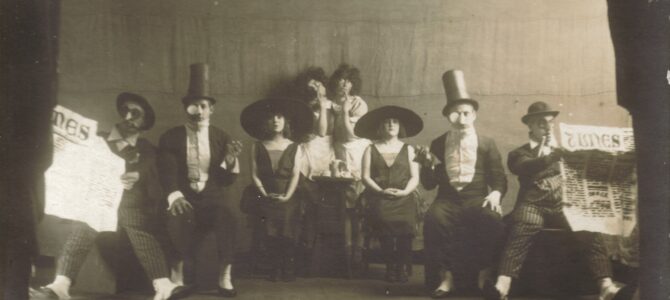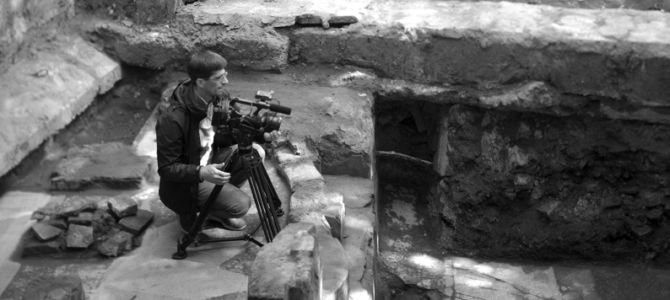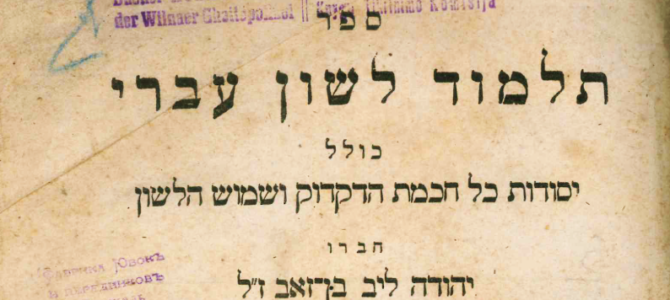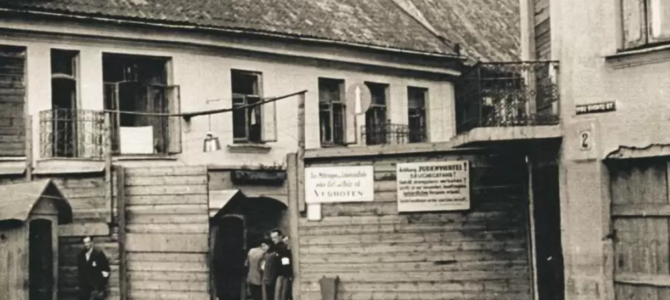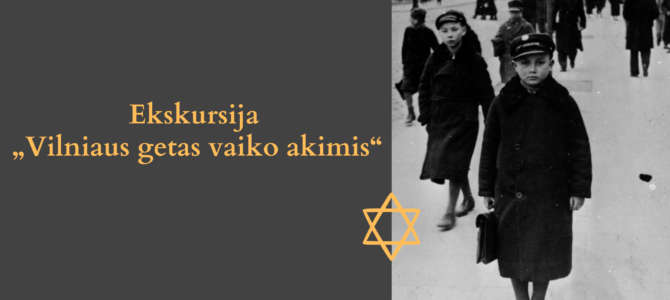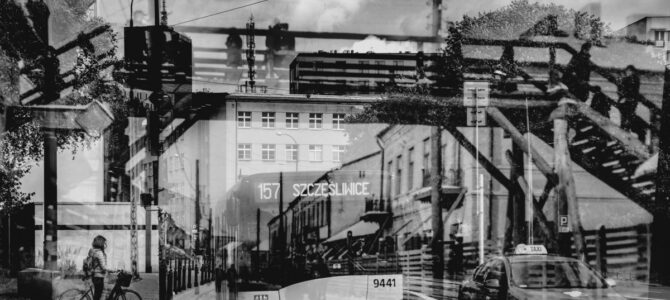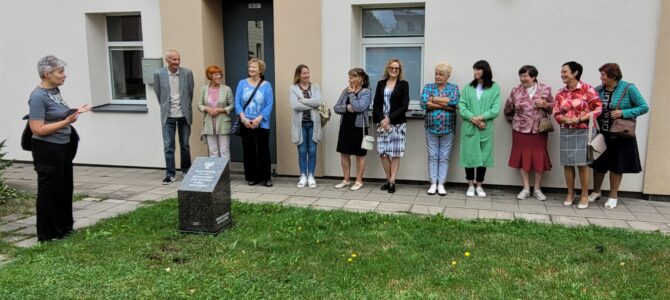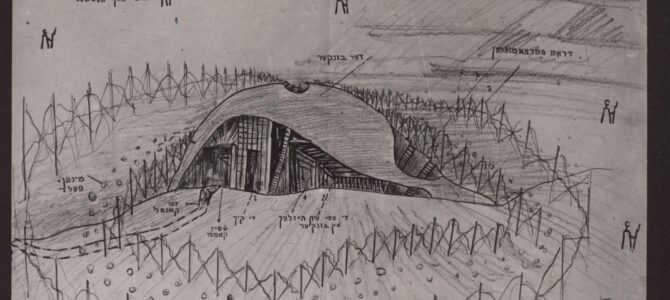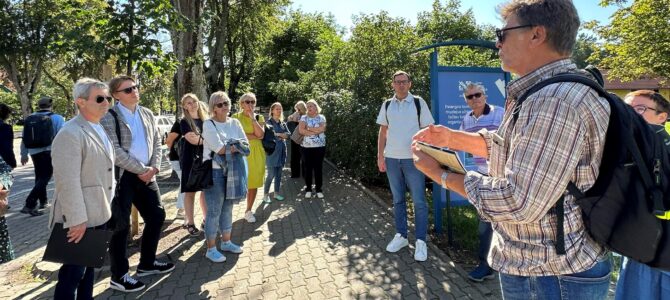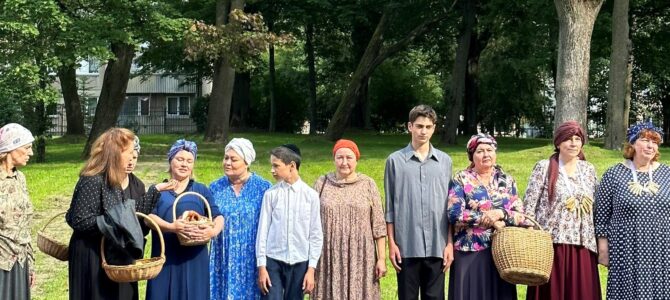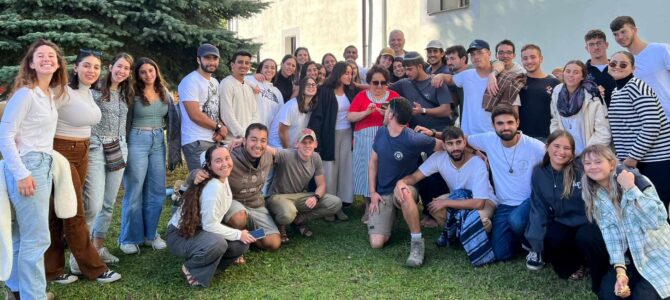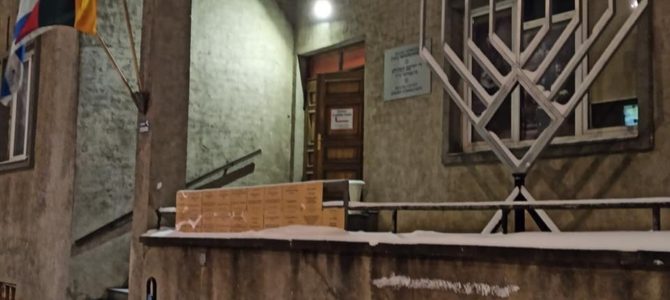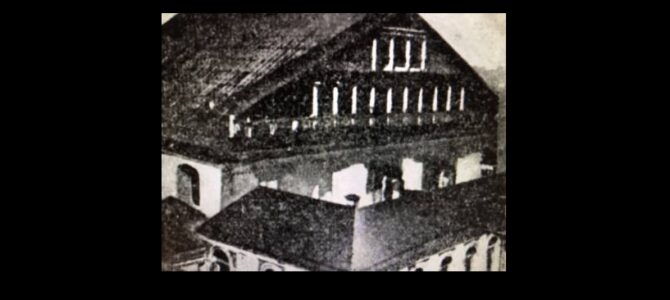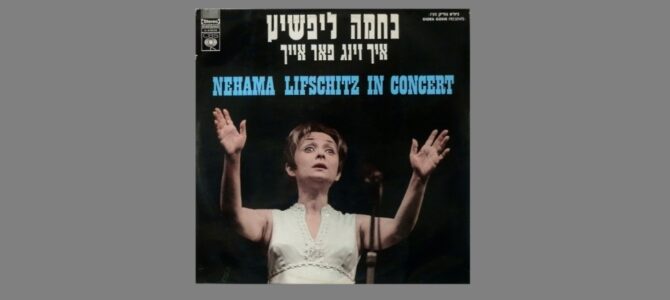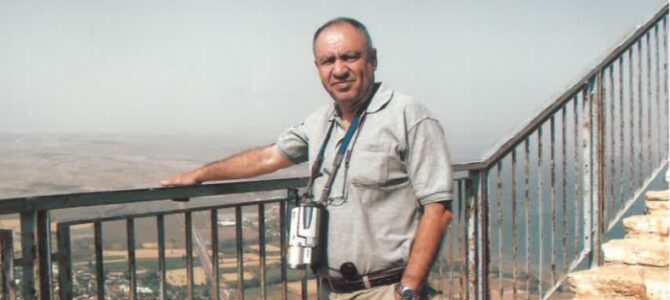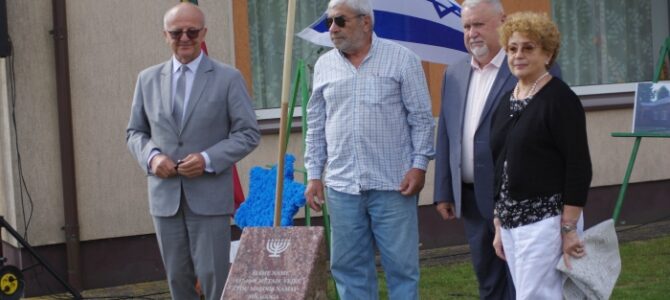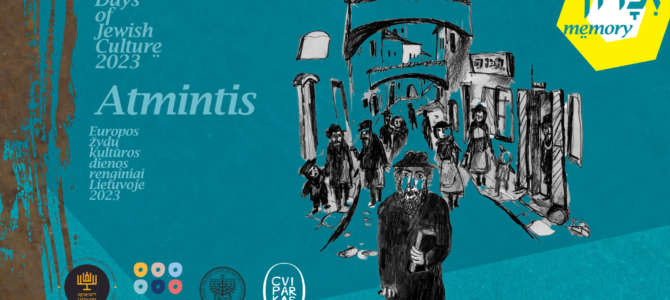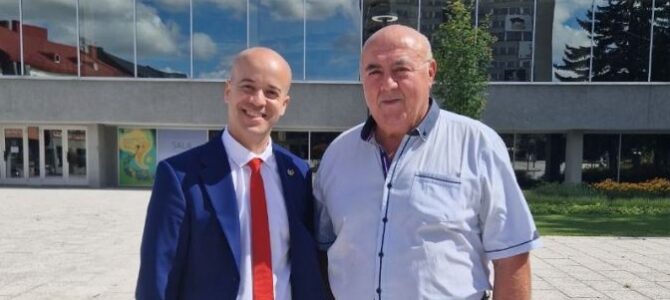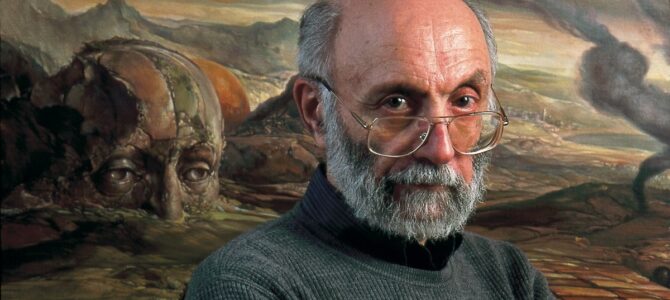After a great start in Vilnius, the European Days of Jewish Culture move on to Vilkomir (Ukmergė) with a series of interesting and perhaps moving events. The two-day program promises to enrich the public’s knowledge of Jewish culture and hopefully to teach them about the rich Jewish heritage inherent in their local area.
At 2:00 P.M. on Thursday, September 7, there will be a reading of the names of Holocaust victims at the location where the Great Synagogue once stood in Vilkomir (Vienuolyno street no. 2).
At 7:00 P.M. on Thursday, September 7, the Ukmergė Tolerance Center (Vasario 16-osios street no. 11) will open an exhibit of photography by Jurga Jackevičiūtė called “Įmelsta žemė” [Pierced Land] including a presentation by the photographer of her trips to Jerusalem.
At 5:00 P.M. on Friday, September 8, the Ukmergė Tolerance Center will screen a documentary film by Loic Salfati called “Secrets of the Great Synagogue of Vilnius” which includes documented historical facts, a large number of interviews and findings from archaeological digs at the site of the former Grand Synagogue in 2019 and 2021 to tell the hitherto little-known true history of the synagogue which mostly survived the Holocaust and World War II only to be razed in the 1950s. There will be a discussion with the French filmmaker following the screening.
